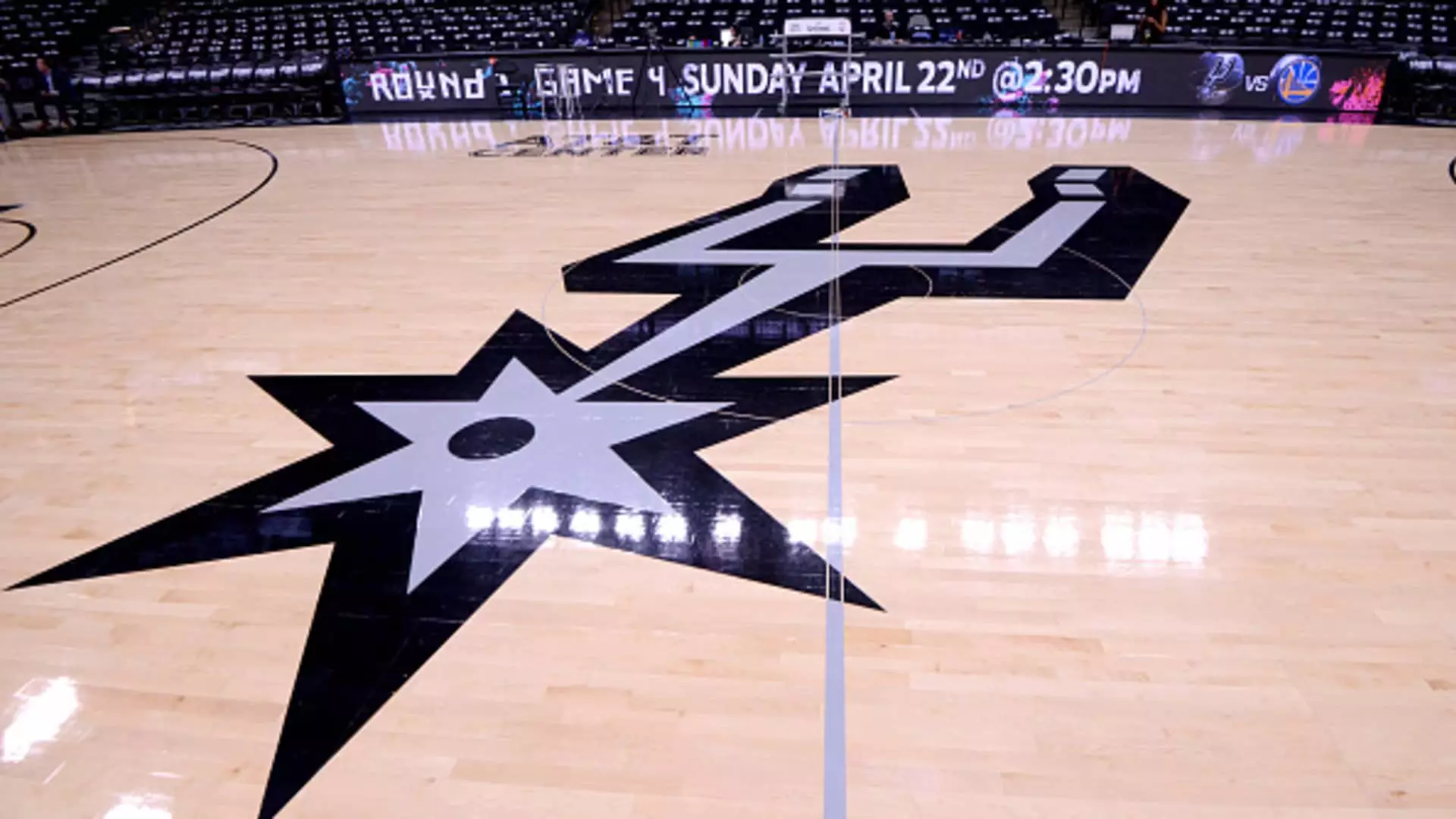In the rapidly evolving landscape of professional sports, ownership stakes are today more than just symbols of prestige; they are tangible investments garnering serious financial returns. Paul Viera, a prominent businessman and CEO of Earnest Partners, is poised to capitalize on this trend by increasing his ownership position in the San Antonio Spurs from 5% to 11%. This significant move underscores not only the escalating valuations of NBA franchises but also the shifting dynamics of ownership in the league.
Recent shifts in media rights deals, with the NBA securing a staggering $76 billion over 11 years, have bolstered basketball franchises’ market value significantly. Viera’s decision to acquire Aramark’s remaining share in the Spurs for an estimated $2.5 billion is reflective of this trend. It is noteworthy that he was able to obtain this stake at a discount, a typical scenario as minority owners often benefit from pricing breaks when purchasing smaller portions of a team, which come with less influence over operational decision-making.
Previously, Viera had entered the Spurs’ ownership group with a 5% stake, further emphasizing his confidence in the future financial prospects of the team. The strategic nature of these transactions highlights how savvy investors like Viera are closely monitoring the NBA marketplace amid soaring valuations.
The financial intricacies surrounding Aramark’s involvement serve as an additional layer of context about the current state of NBA ownership. In its 2023 annual report, Aramark disclosed a hefty $98.2 million sale from its previous investment in the Spurs, which led to a pre-tax loss of $1.1 million. This situation illustrates that even within a lucrative league, risks exist, and investments can yield undesirable outcomes. However, for investors like Viera, this does not detract from the long-term potential of franchises like the Spurs.
Historically, the San Antonio Spurs have been one of the NBA’s most storied franchises, with five championship titles to their name. Yet, the team has faced challenges recently, failing to qualify for the postseason since 2019 and finishing the 2023-24 season with a dismal record of 22-60. Despite these setbacks, hope arises from the emergence of rising star Victor Wembanyama, positioning the Spurs for a potentially bright future, both on the court and in their financial health. A turnaround led by a talented player can significantly influence team valuations, making current investments seem far more prudent.
Viera’s involvement with the Spurs also resonates within a larger movement aimed at diversifying ownership in the NBA. The league has actively sought out ownership from a broader range of backgrounds, especially emphasizing the inclusion of former players and individuals of color. Notable figures such as David Robinson, Grant Hill, and Dwyane Wade have set precedents by taking ownership stakes in various franchises. This trend fosters greater representation and relatability within the league, altering not just who owns teams, but who impacts decisions in the basketball community.
As Viera amplifies his stake in the Spurs, it’s essential to observe the greater implications within the NBA. For instance, the recent sale of a minority interest in the Milwaukee Bucks by Junior Bridgeman for a $4 billion valuation further reinforces the premium placed on NBA franchises. The anticipation around the Boston Celtics’ ownership stake, which is expected to yield an impressive valuation of $5.5 billion to $6 billion, adds another layer of excitement and competition among potential investors.
Overall, as valuations continue to rise, driven by expanding media deals and a growing interest in basketball, Paul Viera’s acquisition can be viewed as both a strategy for financial growth and a commitment to the future of the Spurs. With shifting ownership demographics and the promise of young talent, the landscape of NBA investments is rife with opportunities for savvy business minds ready to make their mark.

